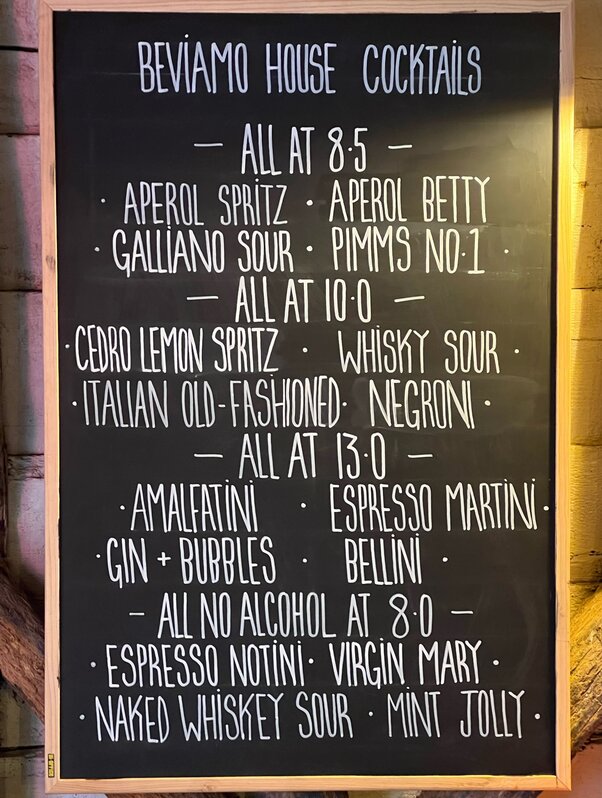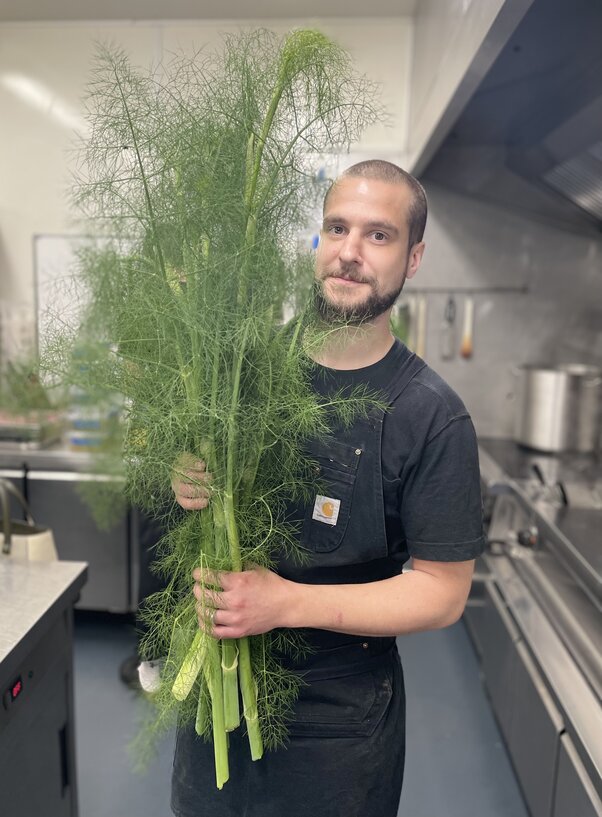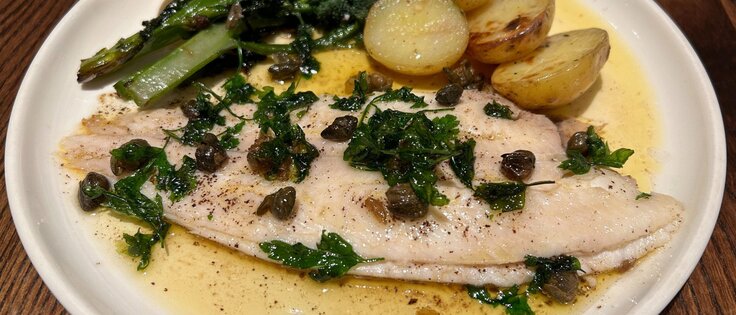
Article
8 min read
Adapting, reacting and the Ed Effect – Watson and Walpole
Alice Leach
Jul 9, 2024
What's on the menu
Meet the team
- Who: Ruth Watson and Rob Walpole
- Role: Co-owner
- Business: Watson and Walpole
- Where: Framlingham, Suffolk
That serves up
- An illustrious career
- A business that capitalises on opportunity
- An offering for every season
- Speciality food in a rural location
Ruth Watson has conquered the hospitality world, repeatedly. From owning the UK’s first gastro pub to buying Hintlesham Hall and running a hotel on the Orford coast, she’s done it all. Now she’s teamed up with expert head chef, Rob Walpole, for her latest venture – Watson and Walpole in Framlingham.
The Ed Effect – capitalising on celebrity connections
Framlingham has tourism, but not tourism like the Suffolk and Norfolk coastlines does. The small market town’s tourist trade is driven by the ‘Ed Effect’. Ed Sheeran grew up nearby, went to school locally and wrote ‘Castle on the Hill’ about Framlingham Castle and town.
The Ed Effect has seen visitor numbers rocket. And Watson and Walpole is reaping the benefits of that footfall. As Ed is actually a ‘not-very-regular regular’ to the restaurant – causing utter delight to unsuspecting visitors and fans alike.
Serve up your speciality, not necessarily your interests
Despite Rob’s favourite food being Thai and Ruth’s Japanese, they decided that the venue should serve Italian cuisine. The menu brings all varieties of traditional Italian food to rural Suffolk. Why lean into the Italian angle? Because it’s what Rob does best; “He makes the best pasta I’ve ever eaten anywhere – and I’ve eaten a lot”, Ruth laughs.
And they have a local-first approach to stock and ingredients – but only for quality produce. “If we can’t source the best ingredients locally, we import them from Italy”. Rob loves to keep their footprint as small as possible, but the food comes first.
And while Italian is Rob’s bread and butter, the team doesn’t rest on its laurels. “Our customers look forward to the fact that our menu changes monthly. There is always something new on it for regulars to try”.
Embrace opportunity, quickly and boldly
The Watson and Walpole work ethic is about being reactive and seizing opportunity. They’re never deterred, even by minor inconveniences like missing out on their venue of choice.
That tenacious attitude has seen them expand beyond the restaurant’s borders. A ‘shed’ attached almost directly to the main restaurant (just outside the back kitchen door), became available. And even though it was in a state, Ruth and the team didn’t want anyone else to have it. So Beviamo became another reactive opportunistic risk that the team made. The importance of ‘guarding their territory’ led them to a new adventure. The idea? To sell good Italian wine and drinks alongside the classics – local beer, soft drinks and great cocktails. The real challenge has been getting locals to change their attitudes.
“I'm rubbish at estimating how long it takes people to get into their psyche that something exists, especially in the countryside. We think we’re telling everyone we’re there, and it’s a small town, but they don’t know or remember.”

Beviamo’s tucked away location means people have to know it’s there. But the Suffolk town doesn’t or hasn’t had a bar culture. It takes time to bed in and change perceptions: “there was an unfounded opinion that our drinks were expensive, but we’re actually cheaper on cocktails than the local pubs, and with far better-quality booze!”.
Small town culture takes time to change. Convincing someone to go to a bar after work rather than a pub takes time. Convincing people to go to a restaurant for a coffee rather than a café takes time. And a lot of it comes down to routine and perception of cost. The Watson and Walpole know that this all takes time, and they’re bedded in.
An opportunity’s an opportunity's an opportunity
And Ruth and the team continue to take opportunistic leaps – seizing the chance to take over the local ice cream parlour too. Ice cream is a natural pairing for the Italian restaurant and the parlour is situated right at the entrance to the town’s main attraction – Framlingham Castle.
Selling local ice cream, the new space was a natural addition that helps Ruth capitalise on the tourist footfall completely. If the weather is bad, lunch in the restaurant. And when the sun’s out, families and Sheeran’s fans keep cool with ice cream.
Reputation opens you up to new customers
While the team didn’t set out with the ambition of garnering international press and acclaim, its been heaped upon them. This means they have a new crowd of customers who are booking ahead and making plans to specifically visit the restaurant and staying locally to do so.
While those visitors are a welcome trend, Watson and Walpole’s business plan still focuses on regular trade. Because the numbers and growth are limited to ‘in season’ visits and are restricted by a lack of high-end or quality places to stay. And opening another hotel is not in Ruth’s future.
Because you have to be much quicker off the mark to impress restaurant guests, Ruth tells us. In a hotel you might have almost 24 hours to ingratiate yourself to your guests and ‘watch them relax’. In a restaurant? You have a couple of hours. And the team at Watson and Walpole know that training is key to wowing and improving.


Training detail
‘Constant training is a must.’ Especially when you have a team made up of more part-timers than full-time permanent staff. Pre-empting guests’ needs, wants and expectations are at the heart of the service Small touches like making sure children have things to play with or appropriate cutlery and cups made, make the overall experience more relaxing and enjoyable. Watson and Walpole always look to deliver. And that anticipatory service takes experience and training.
The team has a solid plan. There’s a training manual for front of house, as a fall back and touchpoint for staff new and old. In the kitchen, Rob trains his team closely, and supports them to evolve their confidence, senses and relationships with the food and ingredients.
“You can teach someone a skill, how to utilise something, but you can’t teach them how to understand it without them working with it, getting involved with it and really feeling it. And I’m there if and when it doesn’t go right the first time.”
And Rob ensures that it’s not just the kitchen team that knows the menu. The whole front of house team is regularly invited ‘backstage’ to get familiar with the menu and ingredients.
Cross-train to cross-sell
Each venue has its own team. The ice cream parlour is a cultural hub for locals looking for their first job and is staffed by a string of school leavers and young people.
The bar was a separate unit, but as the business has evolved they’ve leaned more into using the same team between the restaurant front of house and the bar. It’s given them more flexibility. And it’s supported the business' aim of cross promotion. On a busy Friday or Saturday night, they are now able to point customers to the bar while waiting for a table, or creating a space to gently move customers to after a long meal when their seating window is up. It’s becoming a great way to introduce the restaurant, with well-trained cross-experienced team members able to talk fluently about the menu to drinks customers – encouraging more people to head into the restaurant. It’s also meant that they have more hours available for staff that want them.
Getting lucky with talent
How do you attract and retain talent in a rural location? It’s… tricky. Much of rural recruitment comes down to luck.
“People are struggling with this challenge in London, let alone rural Suffolk” says Rob. But the kitchen team has a very low turnover, with only one person leaving – for their own personal development in a different style of food.
And Ruth credits this to Rob: “He is such an engaging, proper, good, decent, nice chap who doesn’t do any of that shouting or bashing of the staff. He’s a civilised and intelligent human being. He helps them grow, supports them, shows patience and grace.”
Front of house has had a rougher ride, thanks to Covid. They saw a couple of managers leave during furlough. But they now have a local acting as manager who understands the culture of the area, is embedded in the community and less likely to move on.

Keeping an eye on your goals (and values)
What’s the goal? Make some money! But never at the cost of doing it properly. If Watson and Walpole can’t do it right, they don't do it at all. And this is a team that thrives from evolution. From new additions to the venue, to efficiencies, improving the teams’ skills or adding new events, this is a team that moves at pace.
They put on events which give locals a reason to come on what would otherwise be a slow midweek dinner service – think a Wednesday venetian-themed dinner that becomes a ‘call to action’ for locals.
“You can’t stand still in this market. You stand still and you won’t be here anymore” says Rob.
And despite years in the business they’re all learning how to become the most efficient restaurateurs. The cost of running the business is key to success. But never at the cost of the food or experience. And becoming experts in efficiency takes up every last ounce of extra resource. It’s a whole new level of stress and exhaustion. Down to constant electricity usage and monitoring for spikes – resulting in a sad goodbye to a chargrill that was an energy drain.
And their staffing approach has changed. They refuse to ever have someone on a zero-hour contract. But they are keeping a leaner team and adapting their staffing resources more reactively with ‘human’ scheduling that works alongside the team's needs.
After more advice from been-there-done-that pros?
If you like that, you'll love this

Why training and variety are the cherries on top of all good hospitality careers
Even a hospitality "lifer" like Hayley Try Carreira needs to brush up on skills, especially now she's running her own wine bar/retail outlet and one-hour delivery service.

Scheduling shifts ahead turned Socius into an award winner
Even from its rural location, award-winning restaurant, Socius, regularly makes the Michelin Guide. The key to its success is "planning shifts ahead" for its bedrock of a team.

The Single Biggest Update
One month into our campaign to make hospitality teams happier, healthier and more likely to stay in the industry, we take a look at the numbers so far.
